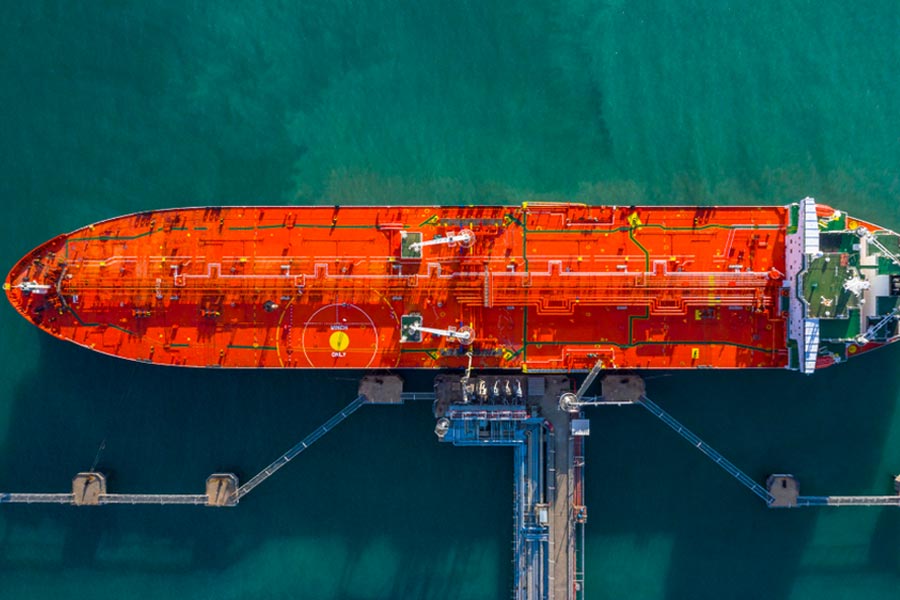It isn’t often that ghosts send out press releases. But that’s precisely what Mumbai-based Gatik Ship Management has done. Gatik was briefly one of the world’s fastest-growing shipping companies. In slightly over one year it built up a fleet of 60 ships (almost all oil tankers) spending an estimated $1.5 billion to $2 billion. But it sank out of sight with even greater speed and in July had only four ships sailing the high seas.
Now, Gatik has for the first time, broken cover and fired a counter-blast at what it described as “media-induced controversies". Gatik turned its guns on the reports about it, both in the Indian media and also publications like the Financial Times. Said the company: “While Gatik’s journey was marked by notable successes, it also encountered challenges. Media-induced controversies resulted in the owner’s decision to withdraw vessels, causing substantial losses due to shifts in insurances, flags and classes.”
The Financial Times said it had elevated itself, “from an unknown Indian shipping business into one of the world’s largest vessel owners.” The FT said shipbrokers and brokers, “suspect a link with its biggest client: the Russian oil giant Rosneft.”
Maritime industry online publication Splash 247 now says: “Much of its fleet has now been moved to companies based in Turkey.”
However, there was a catch with the press release. It did not indicate in whose name it was being put out and carried no phone number or e-mail ID at which it might be contacted. But it appeared to be carrying out a relaunch by issuing its first press release and also showing off a smart new logo and a website which later in the day offered only the words: “Under construction”.
From the day it shot to prominence in March 2022, Gatik was a mystery in an industry that has more than its fair share of mysteries. It operated out of a tiny office in a suburban Mumbai mall that only appeared to have junior staff who couldn’t answer questions from journalists. Attempting to trace the owners was easier said than done. Even London’s Financial Times which did a detailed story focused entirely on Gatik, was unable to trace its final owners.
Gatik was the most prominent product of India’s sudden unquenchable thirst for Russian oil in the wake of the Russia-Ukraine war and the sanctions imposed on the black gold by almost all European countries. Getting the oil to India needed a "black fleet" of tankers that were willing to transport despite the curbs involved.
There are industry estimates that 864 companies suddenly came into being in the maritime industry last year which all had, according to one industry observer: “An association or relationship to Russia.” Splash 247 says: “Gatik was one of the most infamous names to emerge as the so-called dark fleet of tankers swelled in the wake of Russia’s invasion of Ukraine.” The FT points out that there are about 14,000 tankers sailing the high seas but the shipping industry is mostly made up of small players. It says: “Only 20 companies, including Gatik own 50 or more.”
In its press release Gatik also argued that it played a "crucial" role in keeping fuel prices stable in India. Besides that, it insisted it had performed a huge service for the Indian shipping industry and that it had, “made history and championed the growth of the Indian seafaring workforce, providing employment for over 1,500 Indian seafarers.” It added: “This empowerment not only enhances individual careers but also enriches the maritime industry’s talent pool.”
The company added that, “During its journey, Gatik Ship Management has proved its exceptional roles in the transportation of essential cargo for India.”
India in recent months has been buying almost 2 million barrels per day (bpd) of Russian crude oil. But bringing oil from Russia to India is a long process and the journey time from Russia to Indian ports like Sikka in Jamnagar, Kochi and Vishakhapatnam is almost 30 days. That's compared to about five days from Iraq or Saudi Arabia to India. Inevitably, because of the much slower turnaround this has meant more ships are needed for transportation between the two countries.
Though Gatik’s Mumbai office has been mostly shut in recent months, the company has a Dubai office. The release said that the Dubai office, “embraced philanthropy, channelling efforts towards feeding the underprivileged.”
But the company’s future plans appeared to be in flux. “Gatik Ship Management,” declared the press release, “is committed to extend beyond business operations and is devoted towards social responsibility, whether it is about providing cargo at very reasonable rates or generating opportunities.”
What will the future bring for Gatik? Shipping industry observers are watching to see if Gatik will resurface from the depths of the ocean.












